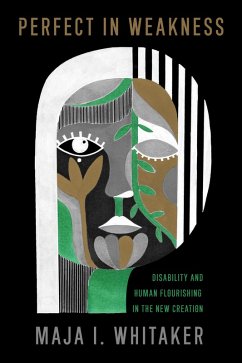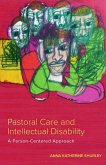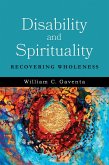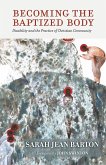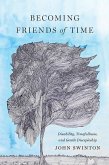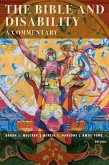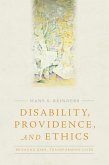One of the central and novel convictions of the early Christian movement compared to the existing Greco-Roman beliefs was the dogma of bodily resurrection. The Stoics esteemed temperance, disciplining the body to curb the flesh; the Epicureans embraced pleasure, indulging their worldly desires. However, Paul's letters to the Corinthians convey a countercultural idea: what you do with your body matters because it will still be with you in the resurrection. But when many contemporary Christians consider the new creation, they imagine the new Jerusalem filled with unblemished people living with normalized and idealized resurrected bodies: "healing" is assumed as a fundamental reality of the resurrection.
In Perfect in Weakness, Maja I. Whitaker develops the proposition that people with disabilities might retain their diverse embodiment in the new creation--that the resurrected body might still be "disabled." This theological claim is based in the accounts of the resurrected Christ appearing with the stigmata, and it is supported by the intuitions of those persons with disabilities who consider that their unique embodiment is identity-forming and entirely unproblematic in itself. If the human person is an essentially embodied metaphysical unity, then there may be features of our particular bodies that must be continuous through the transformation of resurrection for personal identity to be secured. However, this "retention view" has faced conceptual objections on the grounds of theological anthropology, continuity of identity, and biblical conceptions of flourishing human life. Whitaker confronts these objections, integrating philosophical, biblical, and theological methodologies in order to present a reasonable and coherent defense of the retention view.
The possibility of persons with diverse embodiment enjoying fullness of life in the new creation can expose negative attitudes towards disability and unlock a critique of ableist bias in Christian thought and practice in the modern church. Moreover, it can function as an eschatological parable to subvert the powers of this age that idolize success, mastery, and autonomy to the neglect of theologies of weakness, limitation, and dependency. In this way, Perfect in Weakness is important not only in the realm of disability studies but also in the wider Christian community that is mired within the cultural ideologies of our time.
In Perfect in Weakness, Maja I. Whitaker develops the proposition that people with disabilities might retain their diverse embodiment in the new creation--that the resurrected body might still be "disabled." This theological claim is based in the accounts of the resurrected Christ appearing with the stigmata, and it is supported by the intuitions of those persons with disabilities who consider that their unique embodiment is identity-forming and entirely unproblematic in itself. If the human person is an essentially embodied metaphysical unity, then there may be features of our particular bodies that must be continuous through the transformation of resurrection for personal identity to be secured. However, this "retention view" has faced conceptual objections on the grounds of theological anthropology, continuity of identity, and biblical conceptions of flourishing human life. Whitaker confronts these objections, integrating philosophical, biblical, and theological methodologies in order to present a reasonable and coherent defense of the retention view.
The possibility of persons with diverse embodiment enjoying fullness of life in the new creation can expose negative attitudes towards disability and unlock a critique of ableist bias in Christian thought and practice in the modern church. Moreover, it can function as an eschatological parable to subvert the powers of this age that idolize success, mastery, and autonomy to the neglect of theologies of weakness, limitation, and dependency. In this way, Perfect in Weakness is important not only in the realm of disability studies but also in the wider Christian community that is mired within the cultural ideologies of our time.
Dieser Download kann aus rechtlichen Gründen nur mit Rechnungsadresse in A, D ausgeliefert werden.

